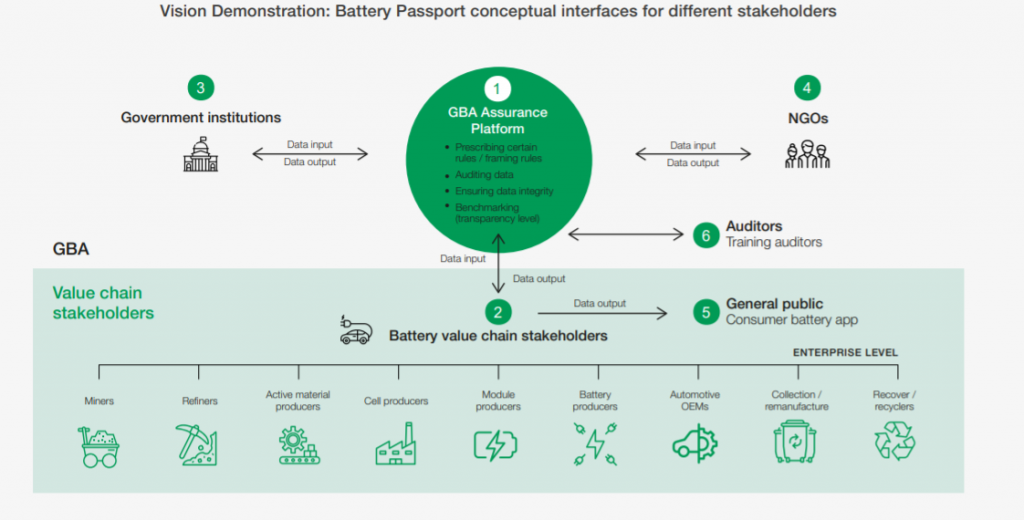Why the Battery Passport will matter for electric cars

- Each Battery Passport will be a digital twin of its physical battery enabled by the digital Battery Passport platform
- The initiative is due to start at the end of this year, with the passport containing various needful information on the battery of an electric vehicle
No doubt, electric cars are considered a critical component for tackling the adverse effects of climate change, but the rapid scale-up of battery production brings challenges of its own, per a report by the Global Battery Alliance (GBA). That is why an initiative known as the Battery Passport was established by GBA earlier this year, during the World Economic Forum.
The initiative aims to ensure that the demand for electric vehicles is met responsibly and is powered by sustainable batteries. While GBA is made up of a number of stakeholders in the value chain, ranging from businesses to civil society to non-governmental organizations, to governments too, each has a vital role to play.

Battery Passport conceptual interfaces for different stakeholder. Source: World Economic Forum
The Battery Passport, according to the alliance, reflects this plurality and aims to align interests throughout the value chain, using a framework for pre-competitive engagement, collective incentives, and accountability. To top it off, with a Battery Passport, the trust in environmental, social and governance (ESG) obligations is strengthened since it will transparently track and validate performance while protecting proprietary interests.
According to ebiketips report, the scheme is due to start at the end of this year, while trail has kickstarted last year. It will enable users to verify a battery’s material provenance, chemistry and identity, and measure its sustainability and environmental impact.
Why is the GBA Battery Passport needed?
For starters, most of today’s EVs use lithium-ion batteries, which can store more energy in the same space than older, more commonly-used lead-acid battery technology. Currently, 99% of lead-acid batteries are recycled in the US, as opposed to the estimated recycling rates for lithium-ion batteries which is about 5%.
According to experts, spent batteries contain valuable metals, along with other materials that can be recovered and reused. Depending on the process used, battery recycling can also consume large amounts of water, or emit air pollutants. Hence with the Battery Passport, the transport and power industries will be aligned with the goals of the Paris Agreement by 2030.
Furthermore, according to GBA research, a circular value chain for batteries can enable the nearly a third (30%) reduction in power and transport sector emissions that is required, to stay on track to meet the 2°C temperature goal set forth in the Paris Agreement, which the European Union and 188 other states have already committed to.
“The development of the Battery Passport, grounded in the GBA Guiding Principles, is a positive step in creating a sustainable battery value chain and helping ensure that batteries can live up to their tremendous potential,” GBA said.
How will the Battery Passport function for electric cars
Basically, each Battery Passport will be a digital twin of its physical battery — enabled by the digital Battery Passport platform, which offers a global solution for securely sharing information and data. Through the platform, each battery will receive its own identity or stamp, detailing individual features – information that value chain stakeholders will be able to access depending on their specific needs.
GBA said stakeholders will receive the data on a discretionary basis, with a view to extending the life of batteries intended for electric vehicle purposes, enabling a safe second life, reducing the costs of recycling, and ensuring the closed-loop management of batteries. Overall, governments and the public would receive the necessary information that demonstrates alignment with public goals.
“This platform aims to go beyond enabling the performance management of just one battery to that of all batteries across the full industry value chain. It is not a commercial product but a means to enable confidence that transactions adhere to all pertinent requirements,” GBA said.
With the Battery Passport, users will be provided with transparency and impact of the battery along its journey to all relevant stakeholders in the battery value chain. It will also allow industry experts to create a framework for benchmarking batteries utilizing criteria like identifying those which are the best and worst in class, and by providing minimum acceptable standards for sustainable and responsible battery development for electric cars.
In essence, the Passport will empower the validation and progress tracking to create a pathway towards more resource-efficient, sustainable, and responsible battery production standards.










